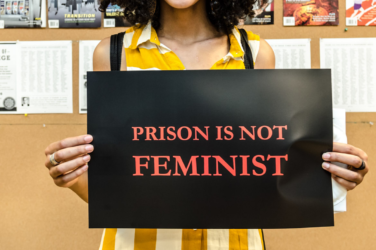New York Representative-elect Alexandria Ocasio-Cortez, the youngest woman ever elected to Congress, captivated thousands of viewers on Instagram Live on November 18 as she cooked black bean soup while discussing subjects from universal healthcare to marijuana.
“FDR may have had ‘fireside chats,’ but AOC has ‘cooking black bean soup on instagram live’ and guys, it is ????????????” wrote one viewer.
The live feed was a powerful example of willingness to engage in a new—for Democrats—mode of political operating. President Trump leveraged his Apprentice-honed command of the TV medium to hijack Republican debates, and uses Twitter to communicate with the American people at all hours of the day and night. But Ocasio-Cortez was using Instagram—a medium through which her generation channels everything from pornography to celebrity-worship—to deliver an opposing political message.
I am completely absorbed by @Ocasio2018‘s live story on Instagram right now. She’s cooking dinner, answering questions, and talking policy. Something is happening here that we haven’t quite seen before in politics…
— Adam B. Golub (@adamgolub) November 19, 2018
Now that she has committed to making her live-streamed dinner preparation a “weekly-ish” thing, will other politicians be able to ignore the power of the live feed for much longer?
Not that many will currently be able to match her. The 29-year-old’s millennial fluency on social media and her talent for delivering concise, accessible explanations of politics alongside playful and relatable mundane moments give her a compelling edge.
Last night, for example, she spoke of why critics who focus on how we should pay for things like universal healthcare are not asking in good faith—they’re trying to create a distraction. She compared it to making a personal budget; if you really want something, you cut back on other areas of spending. No one, she pointed out, asks how we would possibly find money to pay for wars.
Moments later, she asked what exactly was supposed to be in the “Italian seasoning” that her recipe called for. When the person operating the camera teased her for referring to “thyme” as “thymes,” she smiled easily: “I learned English second y’all” she protested.
It’s also inescapable that her appearance plays a role in her appeal. Centuries of male-gaze perspectives decree that any time a young, traditionally attractive woman looks deep into a camera and does anything, it carries a near-sexual edge. By embracing Instagram Live, she’s harnessing that reality as a powerful tool.
Others have picked up on the mesmerizing quality to her Instagram appearances. “Whenever you read the comments,” a viewer wrote, referring to Ocasio-Cortez’s stare, “you are looking into my soul.”
Ocasio-Cortez read the comment out loud, laughing, clearly aware of the effect she was having.
The writer Andrea Long Chu compared watching Ocasio-Cortez to interacting with a romantic partner:
tfw yr gf had to go out of town for her job but instead of canceling yr date she skypes in for dinner and later you watch a movie together by pressing play on netflix at the exact same time pic.twitter.com/xaTND69Xix
— Andrea Long Chu (@theorygurl) November 18, 2018
The public’s eagerness to reduce politicians to love and sex objects can be off-putting to some (see the reactions to last week’s infamous viral “Beto sex tweet“).
But Ocasio-Cortez, like Trump and other Republicans, is willing to embrace every available weapon in a political war. Many other Democrats seem unwilling to do so. This also represents a departure in gender terms—as Stella Bugbee said recently on The Cut‘s podcast, Ocasio-Cortez uses her beauty in a way that no US female politician has ever really done. (Sarah Palin doesn’t count, she said, because she didn’t have a legitimate social agenda to further with her good looks).
Ocasio-Cortez’s charisma is of course frightening to those who disagree with her policy aims. That’s why she’s getting attacked by Republicans who are, as she put it, “drooling over every minute of footage of me in slow-mo,” thirsty for the slightest slip-up.
But it’s exhilarating to those of us who agree that election day should be a federal holiday, ICE should be abolished, and everyone should be able to get healthcare.
In between mincing garlic and chopping onion, Ocasio-Cortez answered live questions posed by Instagram followers, ranging from “Did you have an Ani DiFranco phase?” to “Can you tell us about federal jobs guarantee?”
Asked for thoughts on Canada’s recent legalization of marijuana, she didn’t miss a beat. Marijuana prohibition is “a tool” used to oppress black and brown people, she said. And we have to get rid of that tool.
She went on to discuss how marijuana should be regulated so that the product would be safer, and other policy considerations. But the simplicity and clarity of her argument—and the ease with which she delivered it—epitomized her whole vibe, and the new kind of potency she is bringing to politics.





Show Comments